Enrollment is down more than 2,000. The campus has had to take seven dormitories out of service.
Timothy Vaughn dutifully cheered the University of Missouri for a decade, sitting in the stands with his swag, two hot dogs and a Diet Coke. He estimates he attended between 60 and 85 athletic events every year—football and basketball games and even tennis matches and gymnastics meets. But after the infamous protests of fall 2015, Missouri lost this die-hard fan.
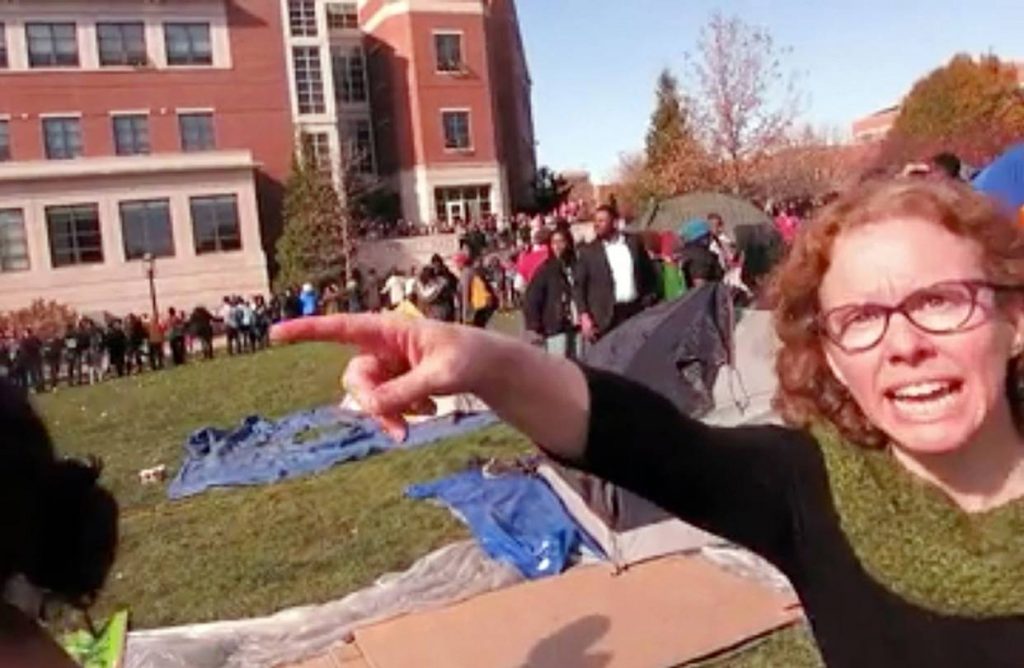
“I pledge from this day forward NOT TO contribute to the [Tiger Scholarship Fund], buy any tickets to any University of Missouri athletic event, to attend any athletic event (even if free), to give away all my MU clothes (nearly my entire wardrobe) after I have removed any logos associated with the University of Missouri, and any cards/helmets/ice buckets/flags with the University of Missouri logo on it,” Mr. Vaughn told administrators in an email four semesters ago.
He was not alone. Thousands of pages of emails I obtained through the Missouri Freedom of Information Act show that many alumni and other supporters were disgusted with administrators’ feeble response to the disruptions. Like Mr. Vaughn, many promised they’d stop attending athletic events. Others vowed they’d never send their children or grandchildren to the university. It now appears many of them have made good on those promises.
The commotion began in October 2015, when student activists claiming that “racism lives here” sent administrators a lengthy list of demands. Among them: The president of the University of Missouri system should resign after delivering a handwritten apology acknowledging his “white male privilege”; the curriculum should include “comprehensive racial awareness and inclusion” training; and 10% of the faculty and staff should be black.
Two weeks later, a student announced he was going on a hunger strike, and the football team refused to practice or play until the university met the demands. As protesters occupied the quad, administrators bent over backward to accommodate them, even providing a power strip so they could charge phones and a generator so they could camp in comfort. A communications instructor, Melissa Click, appeared on viral video calling for “muscle” to remove a student reporter from the quad. By Nov. 9, both the president and the chancellor of Mizzou, as the flagship Columbia campus is known, had resigned.
Donors, parents, alumni, sports fans and prospective students raged against the administration’s caving in. “At breakfast this morning, my wife and I agreed that MU is NOT a school we would even consider for our three children,” wrote Victor Wirtz, a 1978 alum, adding that the university “has devolved into the Berkeley of the Midwest.”
As classes begin this week, freshmen enrollment is down 35% since the protests, according to the latest numbers the university has publicly released. Mizzou is beginning the year with the smallest incoming class since 1999. Overall enrollment is down by more than 2,000 students, to 33,200. The campus has taken seven dormitories out of service.
The plummeting support has also cost jobs. In May, Mizzou announced it would lay off as many as 100 people and eliminate 300 more positions through retirement and attrition. Last year the university reduced its library staff and cut 50 cleaning and maintenance jobs.
Mizzou’s 2016 football season drew almost 13,000 fewer attendees than in 2015, local media reported. During basketball games, one-third of the seats in the Mizzou Arena sat empty.
The university says its teams’ losing streaks have driven away fans, state budget cuts have strained its finances, and competition from other nearby universities has contributed to its lowered enrollment. But the protests were the truly catastrophic factor, compounding the other difficulties. Administrators saw it coming during the crisis, when they fretted in emails about “a PR nightmare” and “the middle of the road people we’re losing.” The past three semesters have validated their worst fears.
This phenomenon isn’t limited to Mizzou. Private institutions like Yale and Middlebury aren’t covered by public-records laws, so they can conceal the backlash. But when public universities have released emails after giving in to campus radicals, they have consistently shown administrators face the same public outrage.
Virginia Tech received numerous phone calls and more than 100 angry emails last year after it disinvited Jason Riley, a columnist for this newspaper, from speaking on campus. “While we can respond to the people who write to us, we cannot dispel the negative impression created by the media against the president, the university, the dean and the college and the department,” one administrator woefully told his colleagues.
Virginia Tech administrators also noted that news of the debacle reached millions on Twitter, where the reactions were “overwhelmingly negative toward the university and higher education in general.” Once again, a frustrated public vowed to yank support.
Universities have consistently underestimated the power of a furious public. At the same time, they’ve overestimated the power of student activists, who have only as much influence as administrators give them. Far from avoiding controversy, administrators who respond to campus radicals with cowardice and capitulation should expect to pay a steep price for years.

 Liberals went nuts when President Trump recently granted 85-year old Sheriff Joe Arpaio a pardon. Many of those on the left thumbed their nose at the Constitution for 8 years, while Barack Obama committed one of the most unconstitutional acts ever by a president, when he forced Americans to buy insurance. Suddenly, they were all of a sudden concerned about the possibility that President Trump may not have adhered to our Constitution when he pardoned America’s toughest Sheriff on illegal immigration.
Liberals went nuts when President Trump recently granted 85-year old Sheriff Joe Arpaio a pardon. Many of those on the left thumbed their nose at the Constitution for 8 years, while Barack Obama committed one of the most unconstitutional acts ever by a president, when he forced Americans to buy insurance. Suddenly, they were all of a sudden concerned about the possibility that President Trump may not have adhered to our Constitution when he pardoned America’s toughest Sheriff on illegal immigration.
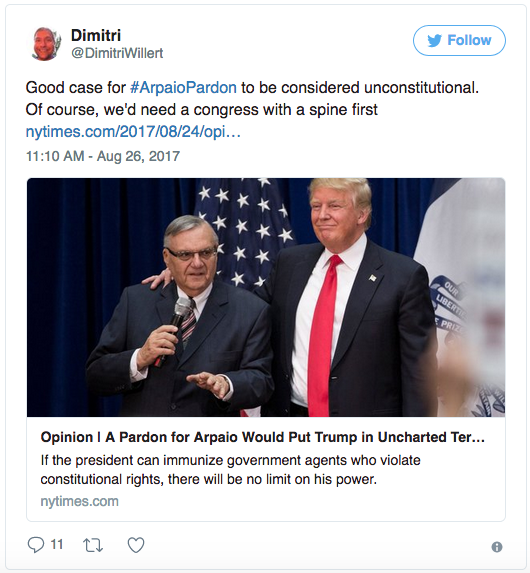
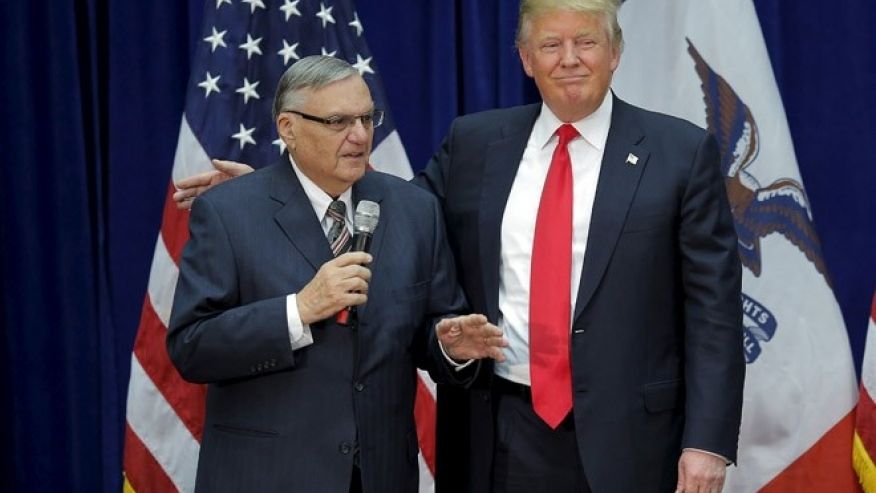

 The high regard in which his comic abilities were held in France — he received the Legion of Honor award in 1983 — became a running joke in the U.S. long after Lewis’ style of broad physical comedy fell out of fashion. His final film, “Max Rose,” screened at France’s Cannes Film Festival in 2013.
The high regard in which his comic abilities were held in France — he received the Legion of Honor award in 1983 — became a running joke in the U.S. long after Lewis’ style of broad physical comedy fell out of fashion. His final film, “Max Rose,” screened at France’s Cannes Film Festival in 2013. He then extended his efforts into writing, producing and directing films. The first two, 1961’s “The Ladies Man” and 1962’s “The Errand Boy,” showed him at his best. His talents also dovetailed with director Frank Tashlin’s style in films such as “Cinderfella” and “The Disorderly Orderly.”
He then extended his efforts into writing, producing and directing films. The first two, 1961’s “The Ladies Man” and 1962’s “The Errand Boy,” showed him at his best. His talents also dovetailed with director Frank Tashlin’s style in films such as “Cinderfella” and “The Disorderly Orderly.”



 Stephen Bannon, the chief strategist to President Trump, is expected to leave the White House, a source tells Fox News.
Stephen Bannon, the chief strategist to President Trump, is expected to leave the White House, a source tells Fox News.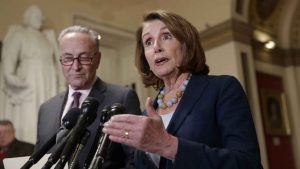 President Trump accused “Obstructionist Democrats” on Friday of hurting national security by waging court fights against his policies, in an apparent reference to the battle over his travel ban and other measures that could get renewed attention following the terror attacks in Spain.
President Trump accused “Obstructionist Democrats” on Friday of hurting national security by waging court fights against his policies, in an apparent reference to the battle over his travel ban and other measures that could get renewed attention following the terror attacks in Spain.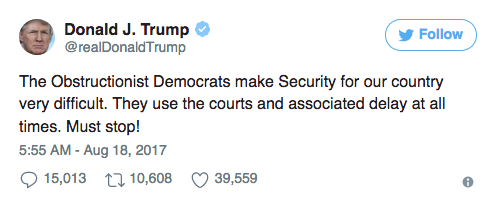
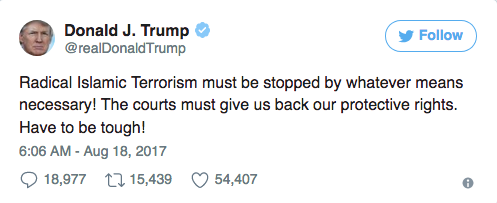




 White House Chief Strategist Steve Bannon opened up in a rare interview published Wednesday by a left-leaning magazine, dismissing some of his enemies in Washington while calling the far-right elements of the Republican party “a collection of clowns.”
White House Chief Strategist Steve Bannon opened up in a rare interview published Wednesday by a left-leaning magazine, dismissing some of his enemies in Washington while calling the far-right elements of the Republican party “a collection of clowns.”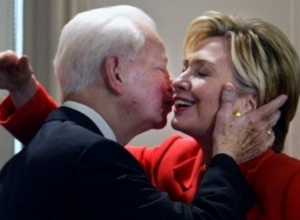 Now that Hillary Clinton has taken it on herself to attack Donald Trump for his toleration of white supremacists, it might behoove her to attack her own husband, who rationalized the late Sen. Robert Byrd’s (D-W.V.) membership in the Ku Klux Klan by lamely allowing Byrd was simply trying to get elected.
Now that Hillary Clinton has taken it on herself to attack Donald Trump for his toleration of white supremacists, it might behoove her to attack her own husband, who rationalized the late Sen. Robert Byrd’s (D-W.V.) membership in the Ku Klux Klan by lamely allowing Byrd was simply trying to get elected.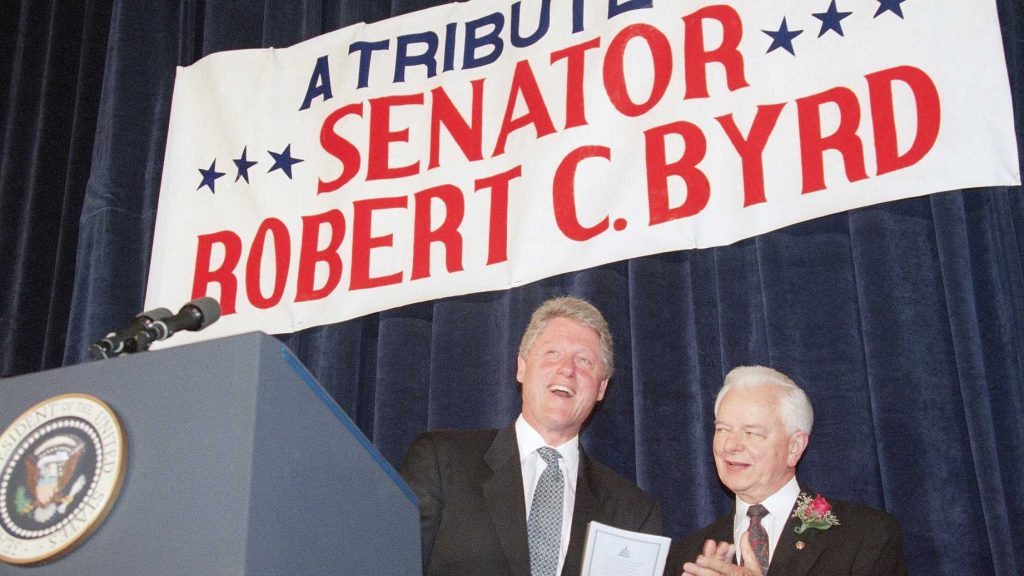
 important had recognized my abilities! I was only 23 or 24 years old, and the thought of a political career had never really hit me. But strike me that night, it did.” Byrd was later unanimously elected the top officer in the local Klan unit.
important had recognized my abilities! I was only 23 or 24 years old, and the thought of a political career had never really hit me. But strike me that night, it did.” Byrd was later unanimously elected the top officer in the local Klan unit. President Trump specifically condemns “white supremacists” and other extremist groups as forces behind the deadly protests and counter-protests this weekend in Virginia, a White House spokesperson said Sunday.
President Trump specifically condemns “white supremacists” and other extremist groups as forces behind the deadly protests and counter-protests this weekend in Virginia, a White House spokesperson said Sunday. North Korea ‘will be met with fire and fury like the world has never seen’ if more threats emerge
North Korea ‘will be met with fire and fury like the world has never seen’ if more threats emerge They told me if I vote for Donald Trump we would be overwhelmed with bigotry the likes of which we have never seen before.
They told me if I vote for Donald Trump we would be overwhelmed with bigotry the likes of which we have never seen before.

 President Trump on Wednesday signed a bill imposing sanctions on Russia, after the legislation overwhelmingly passed the House and Senate.
President Trump on Wednesday signed a bill imposing sanctions on Russia, after the legislation overwhelmingly passed the House and Senate. Top health insurance companies in numerous states are looking to hike premiums by double-digits – some by roughly 30 percent or more – for ObamaCare plans in 2018, according to newly released figures that could light a fire under stalled efforts on Capitol Hill to fix the program.
Top health insurance companies in numerous states are looking to hike premiums by double-digits – some by roughly 30 percent or more – for ObamaCare plans in 2018, according to newly released figures that could light a fire under stalled efforts on Capitol Hill to fix the program. President Trump late Friday replaced his embattled chief of staff Reince Priebus with Homeland Security Secretary John Kelly, the decorated retired general who had been leading his administration’s charge on immigration enforcement.
President Trump late Friday replaced his embattled chief of staff Reince Priebus with Homeland Security Secretary John Kelly, the decorated retired general who had been leading his administration’s charge on immigration enforcement.

 Speaking to reporters, White House press secretary Sarah Sanders cited Kelly’s role at the Department of Homeland Security in working to reduce illegal immigration.
Speaking to reporters, White House press secretary Sarah Sanders cited Kelly’s role at the Department of Homeland Security in working to reduce illegal immigration. Nearly two-dozen Republicans are calling on the Trump Justice Department to appoint a second special counsel to investigate the raft of 2016 campaign controversies involving Hillary Clinton and the Obama administration, warning these questions cannot “be allowed to die on the vine” amid the Russia probe firestorm.
Nearly two-dozen Republicans are calling on the Trump Justice Department to appoint a second special counsel to investigate the raft of 2016 campaign controversies involving Hillary Clinton and the Obama administration, warning these questions cannot “be allowed to die on the vine” amid the Russia probe firestorm.
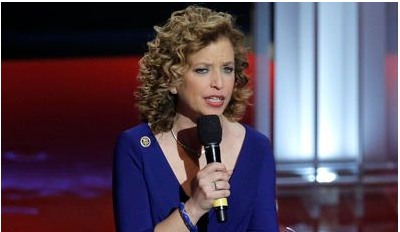 A House IT staffer at the center of a congressional computer equipment scandal has been arrested by federal officials and charged with bank fraud, Fox News has learned.
A House IT staffer at the center of a congressional computer equipment scandal has been arrested by federal officials and charged with bank fraud, Fox News has learned. Authorities also have looked into IT workers putting sensitive House information on the “cloud” and potentially exposing it to outside sources.
Authorities also have looked into IT workers putting sensitive House information on the “cloud” and potentially exposing it to outside sources.
Recent Comments